Virginia Morell Quotes & Sayings
Enjoy the top 17 famous quotes, sayings and quotations by Virginia Morell.
Famous Quotes By Virginia Morell
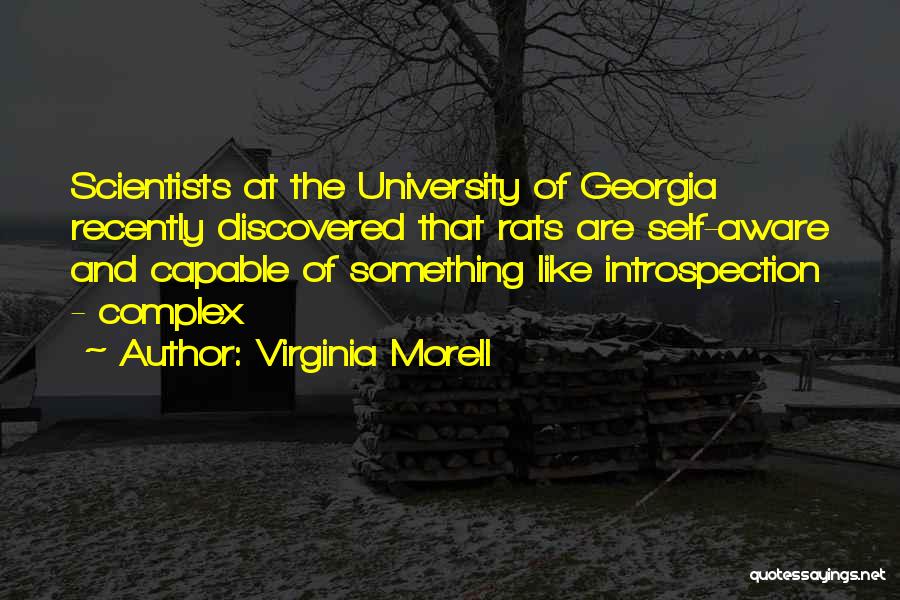
Scientists at the University of Georgia recently discovered that rats are self-aware and capable of something like introspection - complex — Virginia Morell

To demonstrate, Pepperberg carried Alex on her arm to a tall wooden perch in the middle of the room. She then retrieved a green key and a small green cup from a basket on a shelf. She held up the two items to Alex's eye. "What's same?" she asked. She looked at Alex nose-to-beak. Without hesitation, Alex's beak opened: "Co-lor." "What's different?" Pepperberg asked. "Shape," Alex said. Since he lacked lips and only slightly opened his beak to reply, the words seemed to come from the air around him, as if a ventriloquist were speaking. But the words - and what can only be called the thoughts - were entirely his. — Virginia Morell
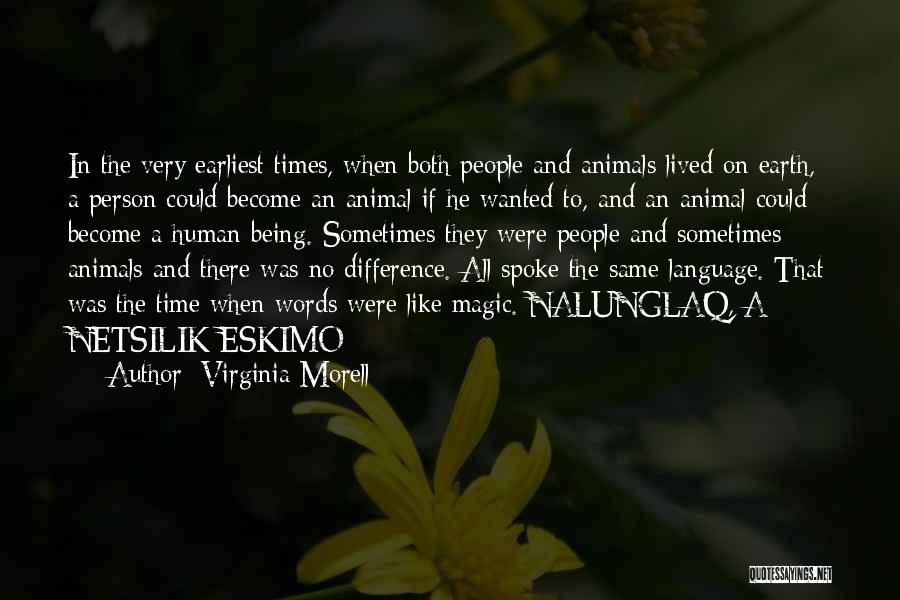
In the very earliest times, when both people and animals lived on earth, a person could become an animal if he wanted to, and an animal could become a human being. Sometimes they were people and sometimes animals and there was no difference. All spoke the same language. That was the time when words were like magic. NALUNGLAQ, A NETSILIK ESKIMO — Virginia Morell
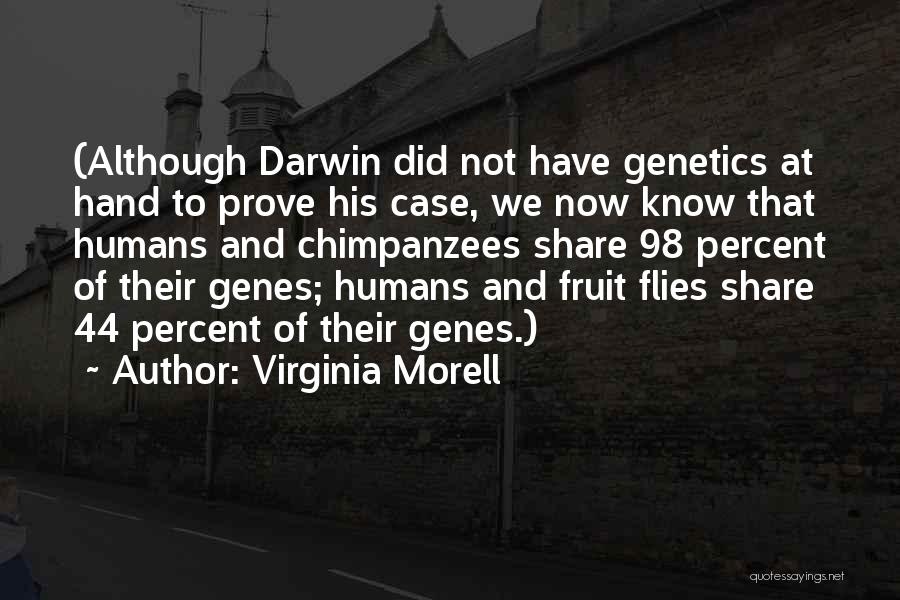
(Although Darwin did not have genetics at hand to prove his case, we now know that humans and chimpanzees share 98 percent of their genes; humans and fruit flies share 44 percent of their genes.) — Virginia Morell
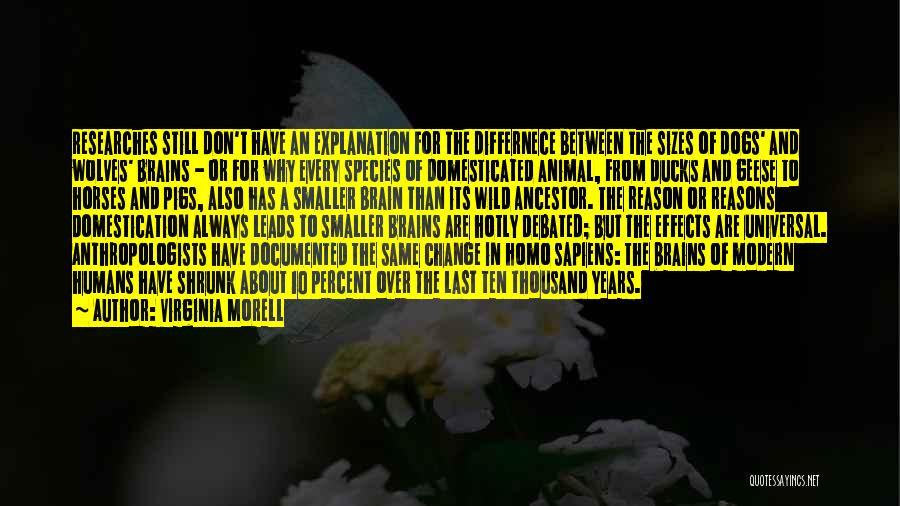
Researches still don't have an explanation for the differnece between the sizes of dogs' and wolves' brains - or for why every species of domesticated animal, from ducks and geese to horses and pigs, also has a smaller brain than its wild ancestor. The reason or reasons domestication always leads to smaller brains are hotly debated; but the effects are universal. Anthropologists have documented the same change in Homo sapiens: the brains of modern humans have shrunk about 10 percent over the last ten thousand years. — Virginia Morell
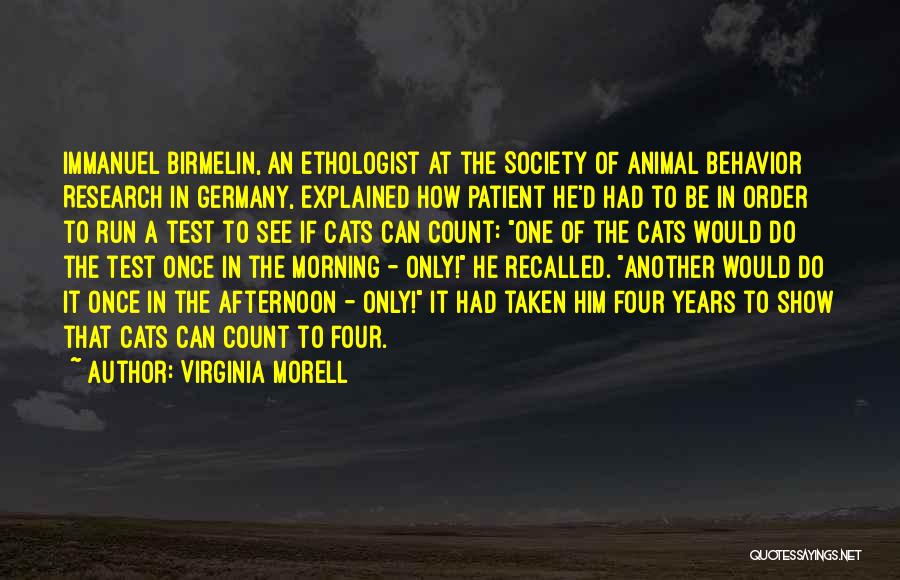
Immanuel Birmelin, an ethologist at the Society of Animal Behavior Research in Germany, explained how patient he'd had to be in order to run a test to see if cats can count: "One of the cats would do the test once in the morning - only!" he recalled. "Another would do it once in the afternoon - only!" It had taken him four years to show that cats can count to four. — Virginia Morell
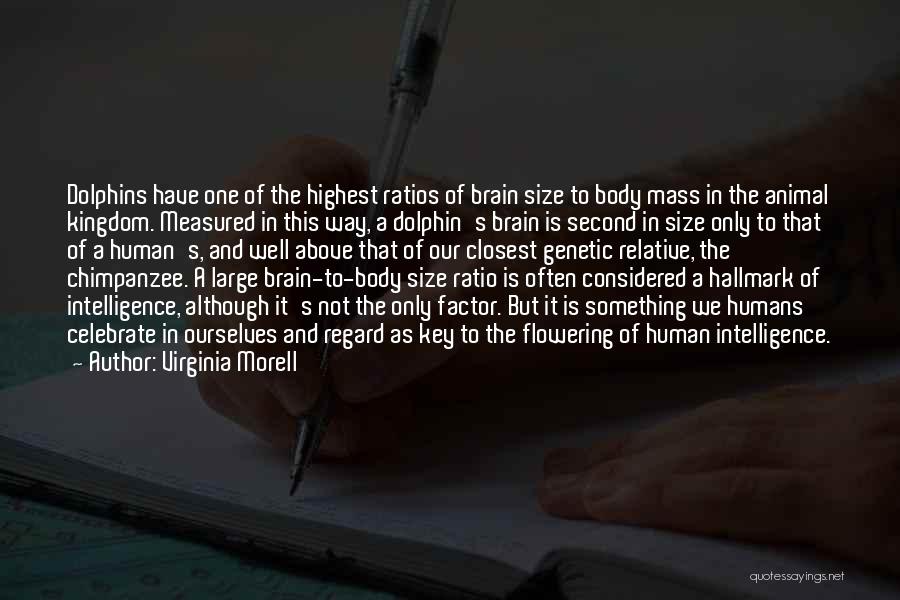
Dolphins have one of the highest ratios of brain size to body mass in the animal kingdom. Measured in this way, a dolphin's brain is second in size only to that of a human's, and well above that of our closest genetic relative, the chimpanzee. A large brain-to-body size ratio is often considered a hallmark of intelligence, although it's not the only factor. But it is something we humans celebrate in ourselves and regard as key to the flowering of human intelligence. — Virginia Morell

didn't talk soothingly to the rat, or stroke her, but firmly grabbed her behind the neck, mimicking a playful nip, and then ran his fingers up and down her rib cage, tickling her. She squirmed briefly, but stopped when he turned her over and tickled her belly. (Like humans, rats have "tickle-skin.") That was when she began to laugh, calls that we heard through the bat detector as quick, high-pitched chirps, and saw on the computer monitor in a sonogram rendition as a vertical series of wavy lines. Compared to a sonogram of various kinds of human laughs, a rat's chirps may be closest to a giggle. "There, she's laughing already," Panksepp said, tickling her some more. "Chup, chup, chup," I wrote in my notebook, trying to approximate the bat-detector's translation of her rat laughter. When Panksepp stopped tickling, she jumped up and bunny-hopped around the bin, while making more of her laughing play-chirps. — Virginia Morell
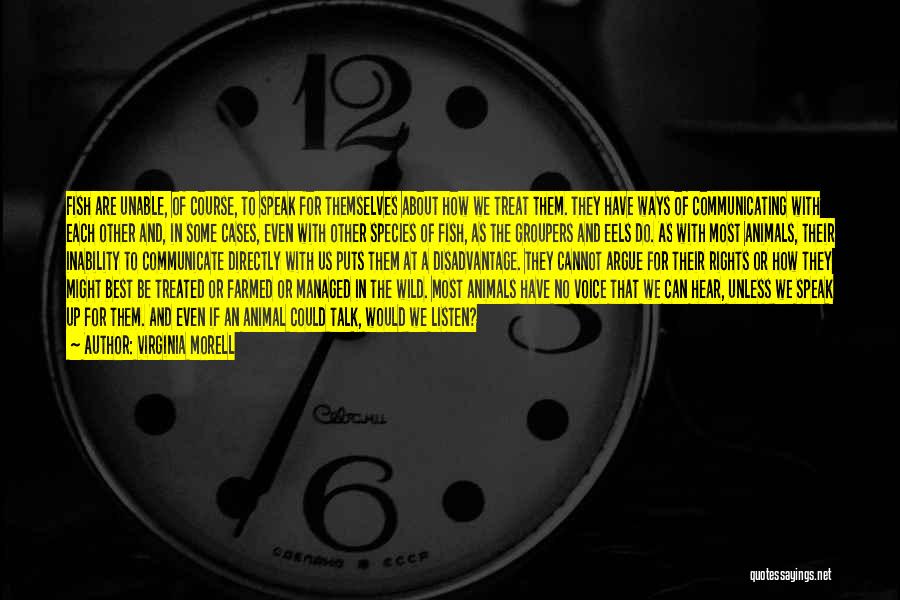
Fish are unable, of course, to speak for themselves about how we treat them. They have ways of communicating with each other and, in some cases, even with other species of fish, as the groupers and eels do. As with most animals, their inability to communicate directly with us puts them at a disadvantage. They cannot argue for their rights or how they might best be treated or farmed or managed in the wild. Most animals have no voice that we can hear, unless we speak up for them. And even if an animal could talk, would we listen? — Virginia Morell
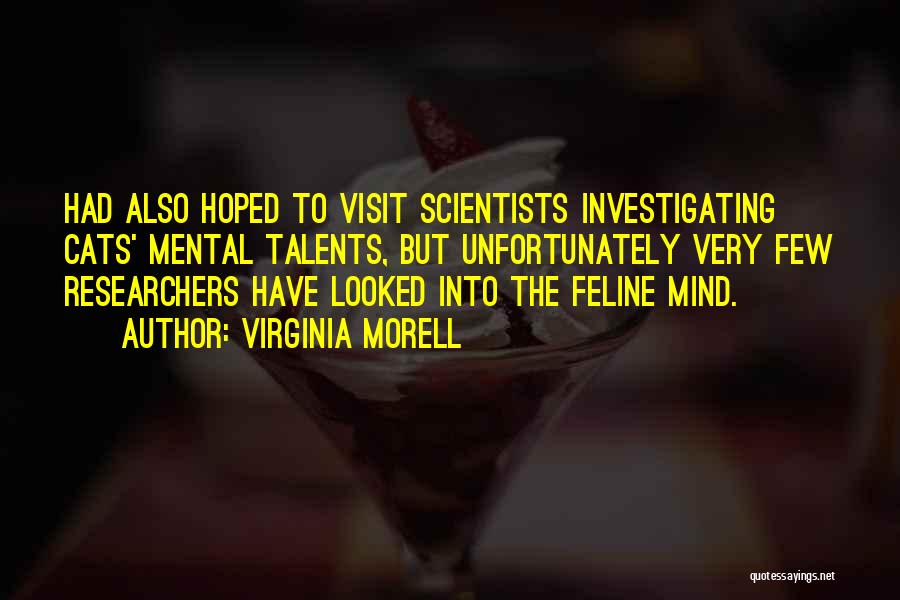
had also hoped to visit scientists investigating cats' mental talents, but unfortunately very few researchers have looked into the feline mind. — Virginia Morell
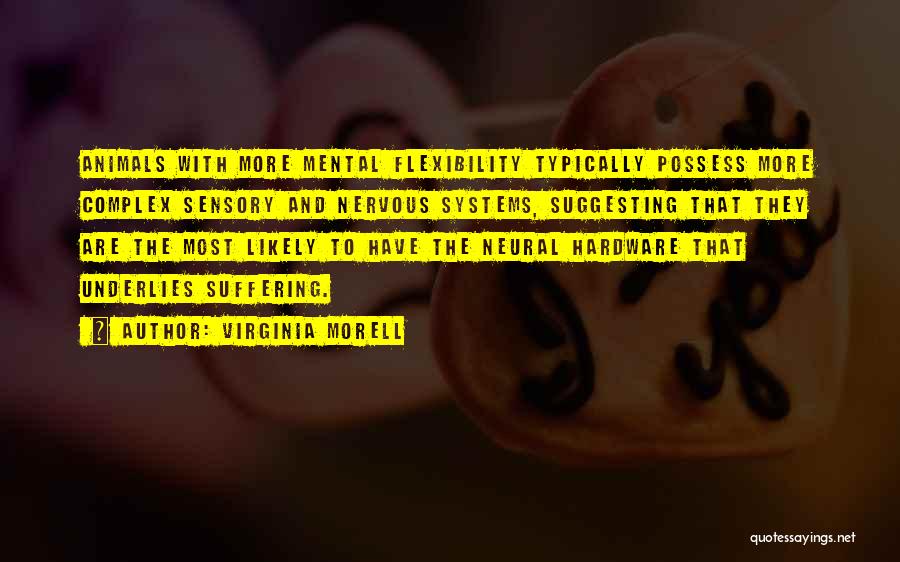
animals with more mental flexibility typically possess more complex sensory and nervous systems, suggesting that they are the most likely to have the neural hardware that underlies suffering. — Virginia Morell
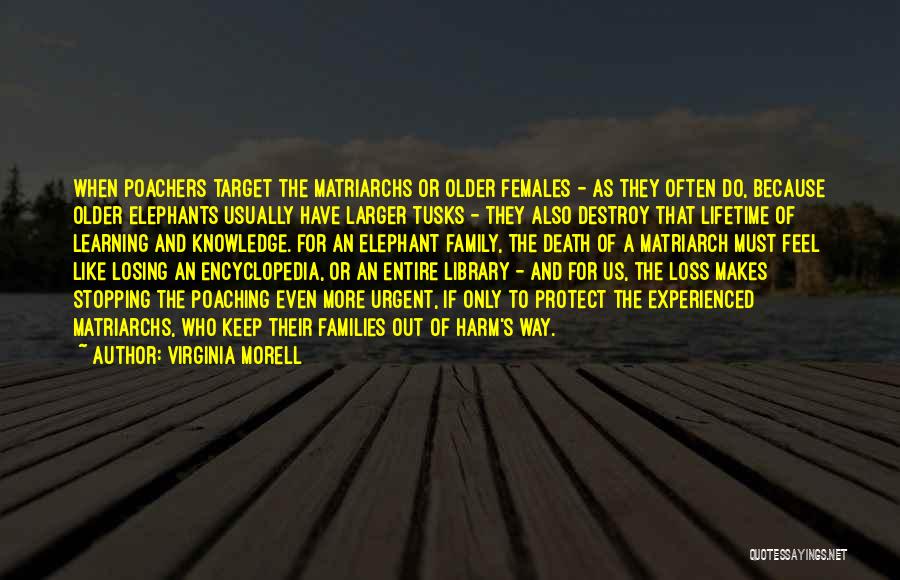
When poachers target the matriarchs or older females - as they often do, because older elephants usually have larger tusks - they also destroy that lifetime of learning and knowledge. For an elephant family, the death of a matriarch must feel like losing an encyclopedia, or an entire library - and for us, the loss makes stopping the poaching even more urgent, if only to protect the experienced matriarchs, who keep their families out of harm's way. — Virginia Morell
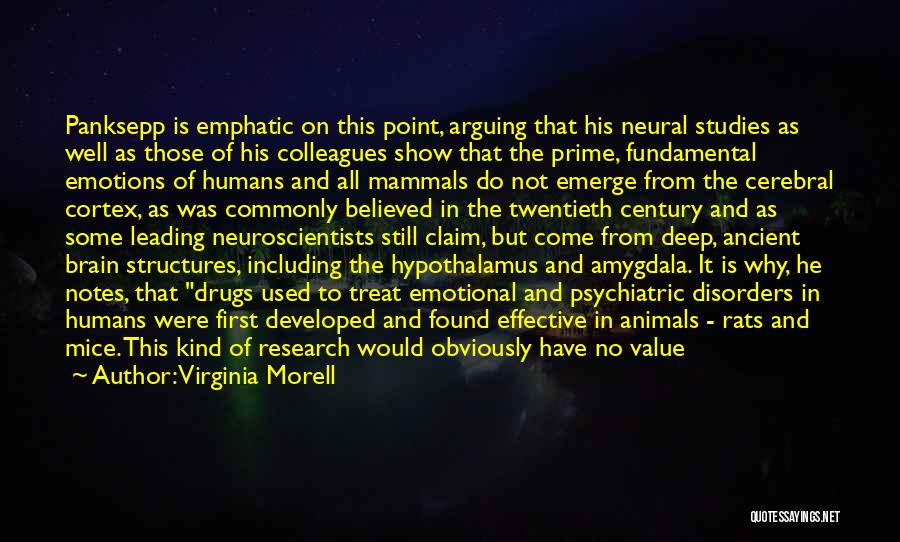
Panksepp is emphatic on this point, arguing that his neural studies as well as those of his colleagues show that the prime, fundamental emotions of humans and all mammals do not emerge from the cerebral cortex, as was commonly believed in the twentieth century and as some leading neuroscientists still claim, but come from deep, ancient brain structures, including the hypothalamus and amygdala. It is why, he notes, that "drugs used to treat emotional and psychiatric disorders in humans were first developed and found effective in animals - rats and mice. This kind of research would obviously have no value if animals were incapable of experiencing these emotional states, or if we did not share them. — Virginia Morell
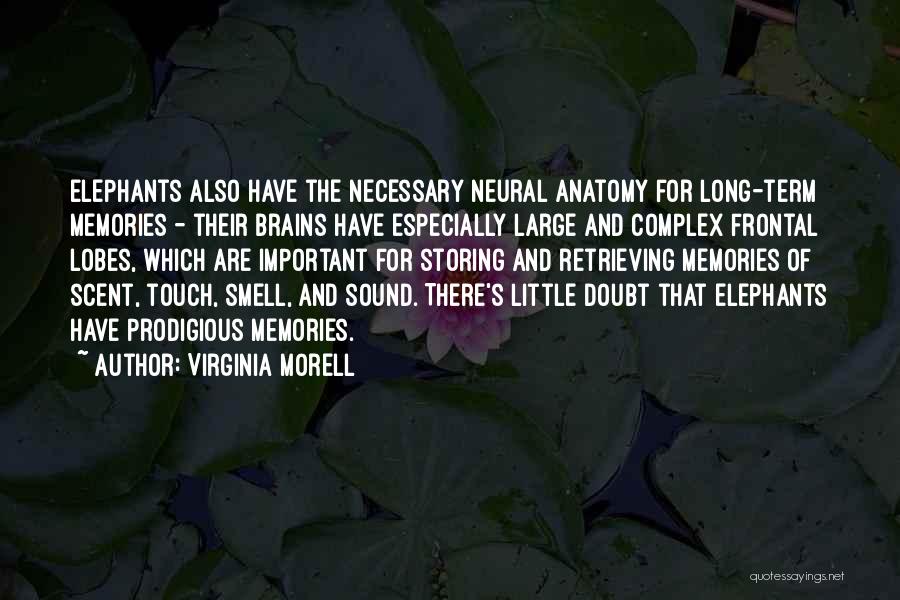
Elephants also have the necessary neural anatomy for long-term memories - their brains have especially large and complex frontal lobes, which are important for storing and retrieving memories of scent, touch, smell, and sound. There's little doubt that elephants have prodigious memories. — Virginia Morell
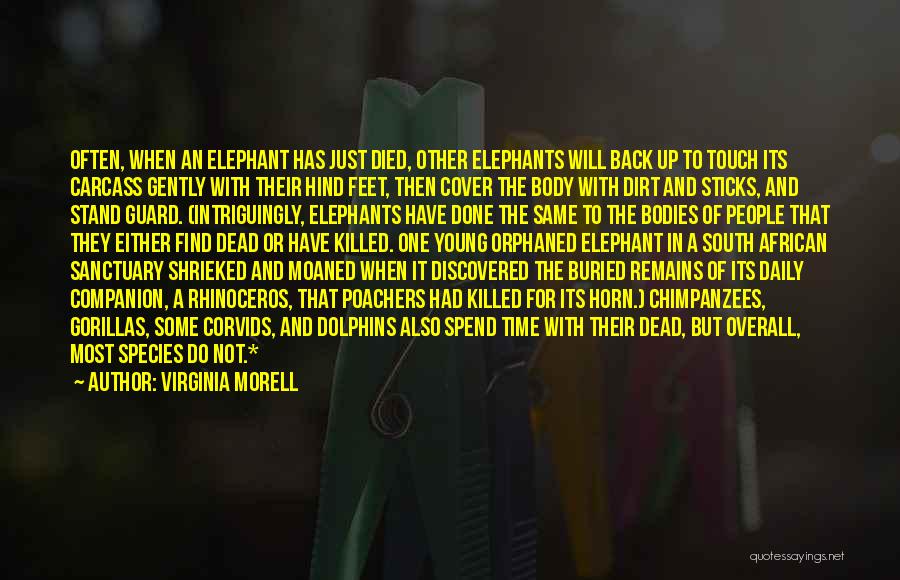
Often, when an elephant has just died, other elephants will back up to touch its carcass gently with their hind feet, then cover the body with dirt and sticks, and stand guard. (Intriguingly, elephants have done the same to the bodies of people that they either find dead or have killed. One young orphaned elephant in a South African sanctuary shrieked and moaned when it discovered the buried remains of its daily companion, a rhinoceros, that poachers had killed for its horn.) Chimpanzees, gorillas, some corvids, and dolphins also spend time with their dead, but overall, most species do not.* — Virginia Morell
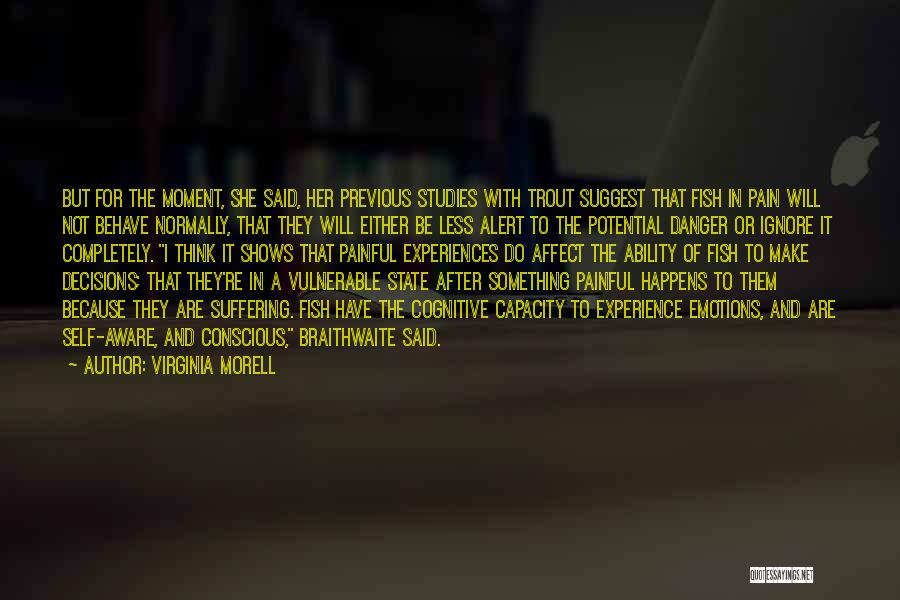
But for the moment, she said, her previous studies with trout suggest that fish in pain will not behave normally, that they will either be less alert to the potential danger or ignore it completely. "I think it shows that painful experiences do affect the ability of fish to make decisions; that they're in a vulnerable state after something painful happens to them because they are suffering. Fish have the cognitive capacity to experience emotions, and are self-aware, and conscious," Braithwaite said. — Virginia Morell
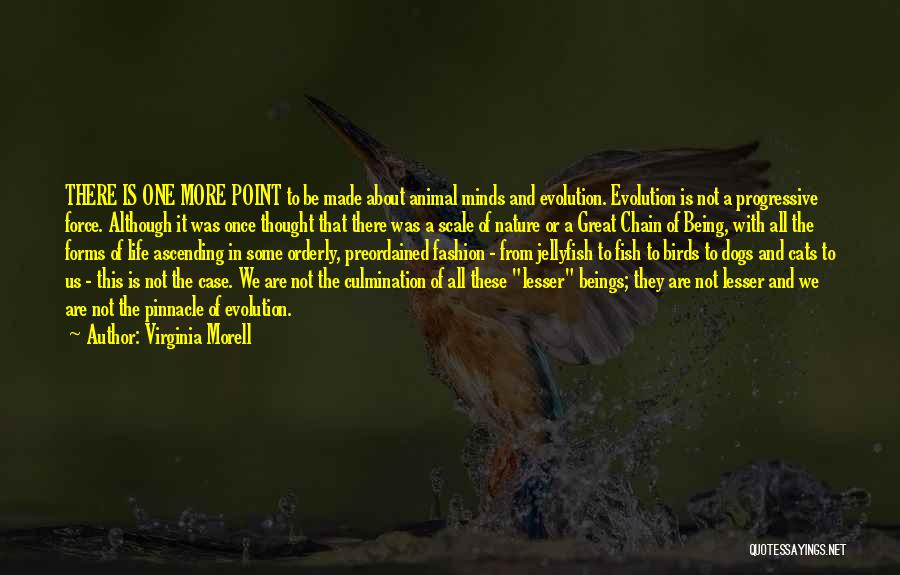
THERE IS ONE MORE POINT to be made about animal minds and evolution. Evolution is not a progressive force. Although it was once thought that there was a scale of nature or a Great Chain of Being, with all the forms of life ascending in some orderly, preordained fashion - from jellyfish to fish to birds to dogs and cats to us - this is not the case. We are not the culmination of all these "lesser" beings; they are not lesser and we are not the pinnacle of evolution. — Virginia Morell





